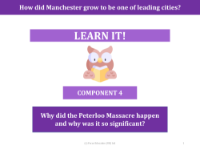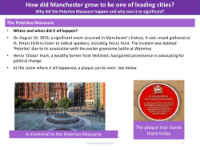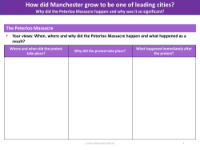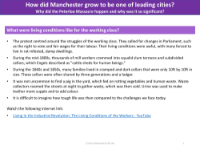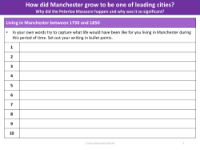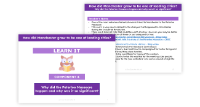Why did the Peterloo Massacre happen and why was it so significant? - Teacher notes
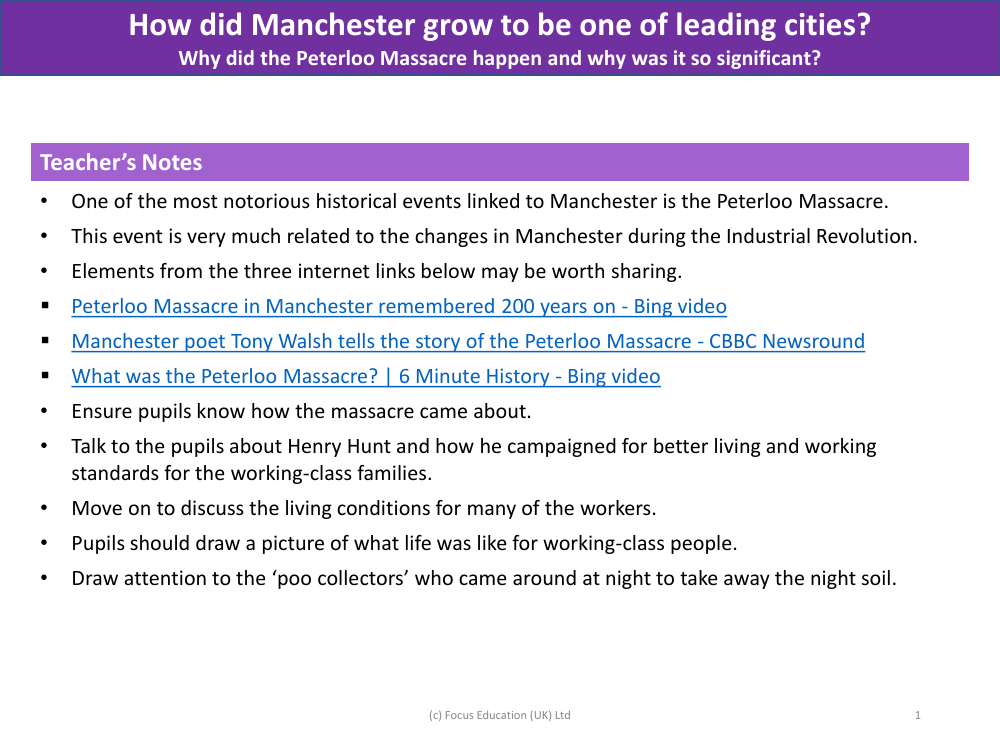
History Resource Description
The Peterloo Massacre stands as one of the most infamous events in Manchester's history, closely tied to the city's transformation during the Industrial Revolution. It's imperative that pupils grasp the reasons behind the massacre, which sprung from a demand for improved living and working conditions for the burgeoning working class. The event was named 'Peterloo' in a grim echo of the Battle of Waterloo, reflecting the violent clash between peaceful protestors and government forces.
Central to the story of Peterloo is Henry Hunt, an advocate for social reform who campaigned tirelessly for the rights of working-class families. His involvement in the protest was pivotal. The living conditions of many workers at the time were appalling, with overcrowding and poor sanitation being commonplace. This is exemplified by the role of 'poo collectors', who would remove waste at night, highlighting the harsh realities of urban life. In exploring the Peterloo Massacre, students should understand not only the immediate events and key figures like Hunt but also the broader significance of the massacre as a catalyst for political change, leading to greater public awareness and eventual reform in the British electoral system.
